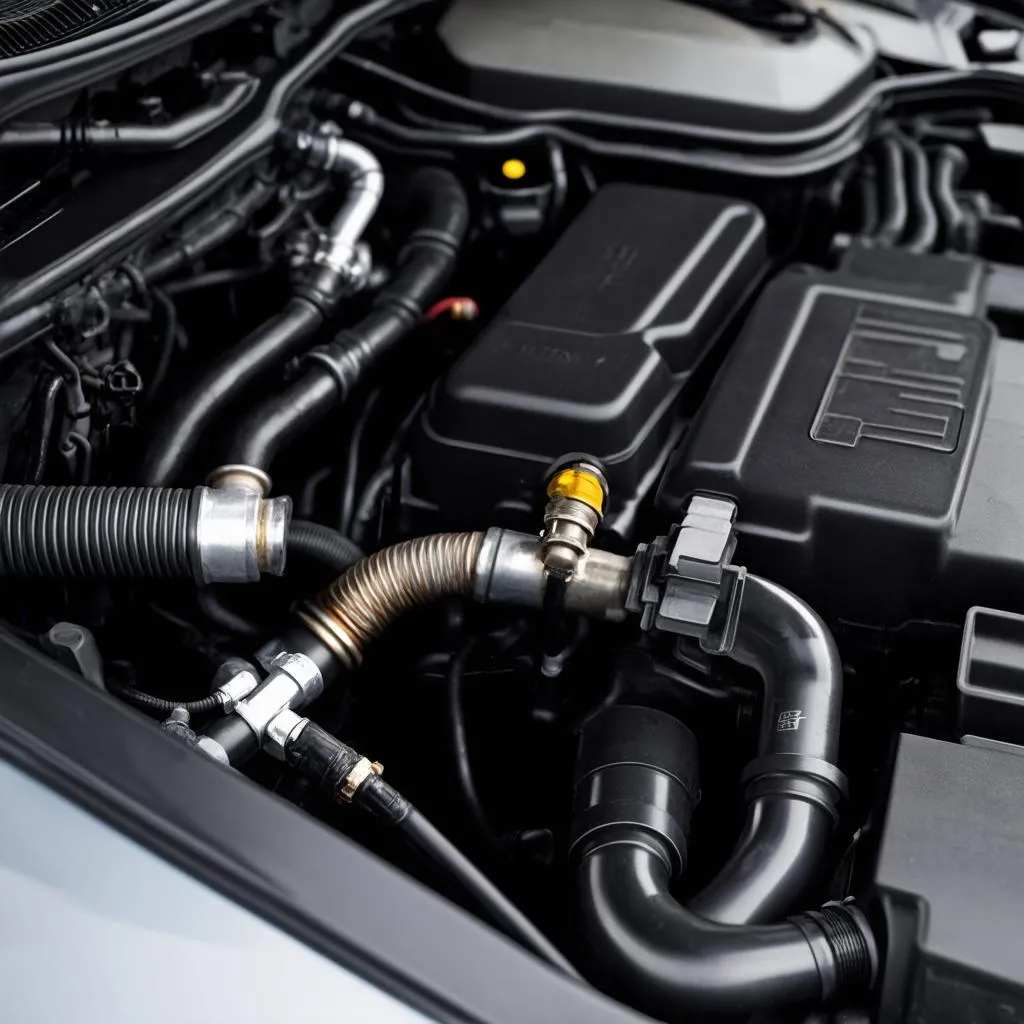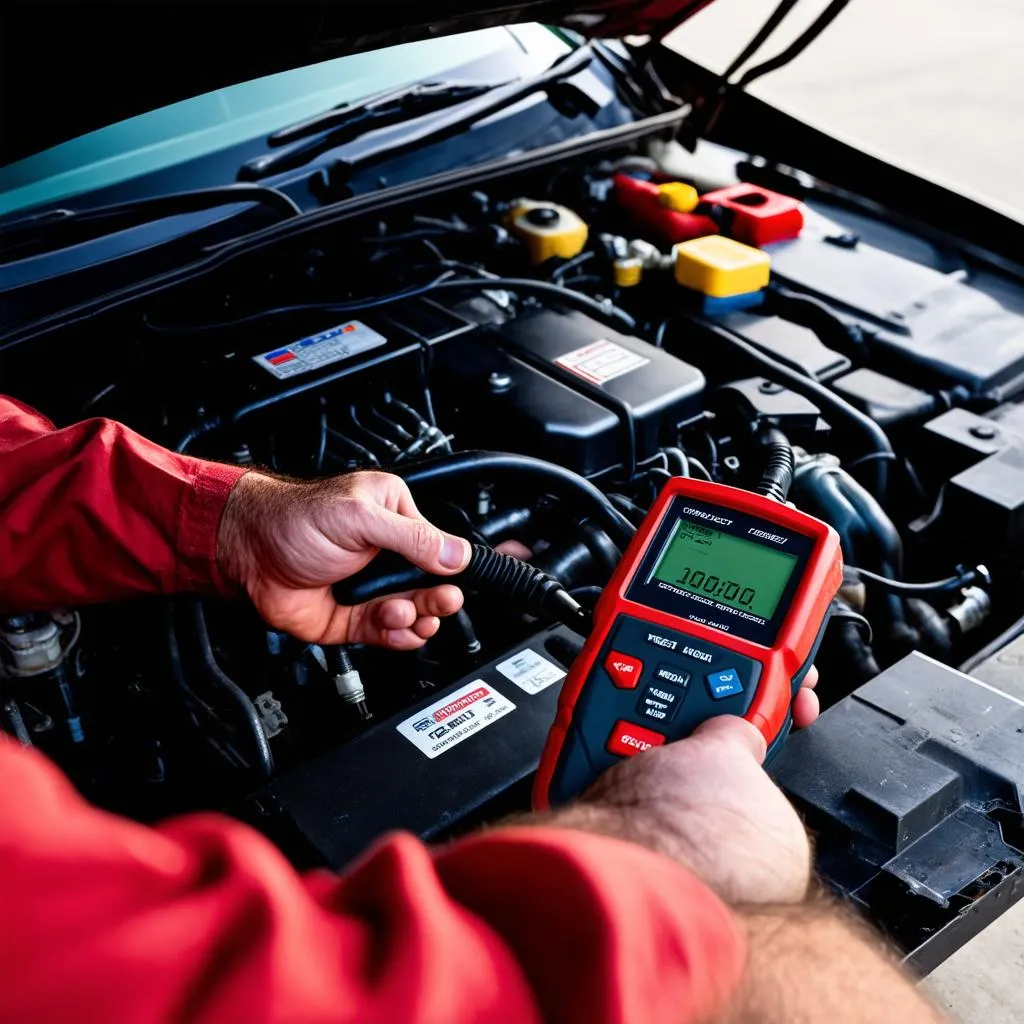“My check engine light just came on, and my mechanic says it’s a P0134 code. What does that even mean?”
Sound familiar? Don’t worry, you’re not alone. The dreaded check engine light is a universal symbol of car trouble, and the P0134 code is a common culprit, especially for Chevy owners.
Decoding the Mystery: What is a P0134 Code?
In simple terms, a P0134 code means your Chevy’s computer has detected a problem with the oxygen sensor in Bank 1, Sensor 1. Think of this sensor as the lungs of your engine. It measures the oxygen levels in your exhaust to help your car run efficiently. When this sensor fails or isn’t sending the right signals, it can throw your engine’s performance out of whack.
Why Should You Care About a Faulty O2 Sensor?
You might be thinking, “It’s just a sensor, how bad can it be?” Well, ignoring a P0134 code can lead to:
- Reduced fuel economy: Your car might guzzle more gas than usual, hitting your wallet where it hurts.
- Poor engine performance: You might experience sluggish acceleration, rough idling, or even stalling.
- Increased emissions: A malfunctioning O2 sensor can increase harmful emissions, impacting the environment.
- Damage to other components: Ignoring the problem can put stress on other engine components like the catalytic converter.
Common Causes of a P0134 Code
Like any good mystery, there are usually multiple suspects when it comes to a P0134 code. Here are some of the usual culprits:
- Faulty oxygen sensor: The most likely cause is a worn-out or damaged oxygen sensor.
- Exhaust leaks: Leaks in your exhaust system can disrupt the oxygen sensor readings.
- Wiring problems: Damaged or corroded wiring to the oxygen sensor can disrupt communication.
- Vacuum leaks: Leaks in the engine’s vacuum system can also impact the air/fuel mixture, leading to this code.
 oxygen sensor
oxygen sensor
Tackling the P0134 Code: Your Action Plan
Now that you understand the problem, let’s discuss solutions.
1. Diagnosis is Key
Before you start throwing parts at the problem, it’s crucial to properly diagnose the issue.
DIYers: You can use an OBD-II scanner to read the code yourself. However, keep in mind that pinpointing the exact cause often requires more advanced diagnostic tools and experience.
Seeking Professional Help: Consider taking your Chevy to a qualified mechanic specializing in European cars. They have the expertise and equipment to quickly and accurately diagnose the root cause of the P0134 code.
2. The Fix: Repair or Replace?
The solution depends on the underlying cause:
- Faulty oxygen sensor: This will likely require replacing the sensor with a new one.
- Exhaust leaks: Repairing any leaks in the exhaust system is essential.
- Wiring issues: Damaged wiring will need to be repaired or replaced.
- Vacuum leaks: Identifying and fixing the source of the vacuum leak is crucial.
 Car diagnostics
Car diagnostics
Don’t Ignore the Signs: The Importance of Timely Action
Remember, that little check engine light is trying to tell you something. Ignoring a P0134 code is like ignoring a toothache – it might seem like a minor annoyance at first, but it can lead to bigger, more expensive problems down the road.
Think of your car’s engine as a complex ecosystem. Even seemingly small imbalances can disrupt the entire system. Just as in Feng Shui, maintaining harmony and balance in your car’s engine is crucial for its overall well-being and longevity.
Need Help with Your Chevy’s P0134 Code?
We’re here to help! At techcarusa.com, we’re passionate about providing car owners with the information and support they need to keep their vehicles running smoothly.
Contact us on WhatsApp at +84767531508 for expert assistance with your diagnostic tool needs. We have automotive specialists available 24/7 to help you troubleshoot and resolve your car problems.
Looking for more helpful car maintenance tips and advice? Check out these articles:
- [Common Chevy Engine Problems and Solutions]
- [Understanding Your Car’s Electrical System]
- [The Importance of Regular Car Maintenance]
Let’s get that check engine light off and get you back on the road!